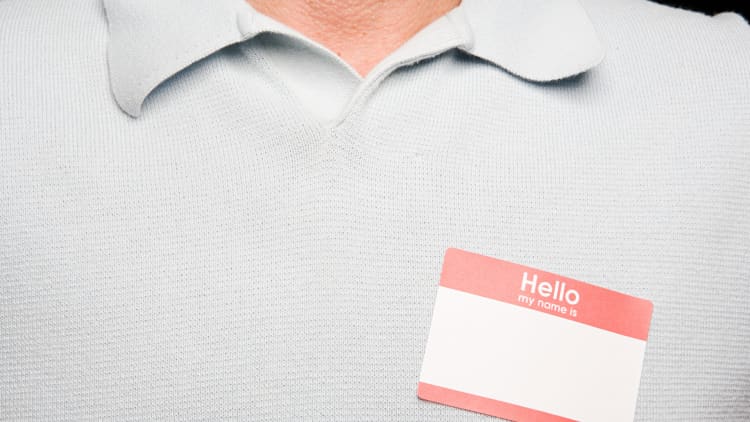William von Hippel, a psychology professor from the University of Queensland in Australia, conducts eccentric experiments to uncover the thought process behind social competence. In one, he and a colleague looked at why older people are more likely to ask embarrassing questions in public. In another, he had an experimenter offer participants a cooked chicken foot and judged their responses.
Based on his findings he believes, above all else, social skill — and specifically charisma — comes down to being adaptable. "There are clearly many qualities that enable people to be socially successful," he tells CNBC Make It, "but the fact that what works in one situation often does not work in another suggests that behavioral flexibility may be the single most important attribute for social functioning."
But that can be broken down further.
The skills you need for social success
In January, van Hippel gave a talk at the Fred Rhodewalt Social Psychology Winter Conference in Park City, Utah, during which he presented the five distinct yet intertwined elements that he believes "behavioral flexibility" depends on.
"These are the mental skills that we believe underlie socially successful responses in general, and charisma in particular," says von Hippel. "We already have some evidence for the left two boxes [and top box] ... and we're working on the right two boxes."
Figure presented by William von Hippel at the Fred Rhodewalt Social Psychology Winter Conference in Park City, Utah, in January.
The first is simply being attuned to the subtle changes in a social situation, or "social contingencies" as they are called. Second is controlling your impulses so you don't say something inappropriate. Then there is the ability to come up with alternative things to say and choose the right option among those. And finally, to really charm, you have to do it all quickly.
"A witty comeback is not funny if it takes too long to deliver and the conversation has moved on," says von Hippel.
Be quick-witted
One of his recent findings backs up this timing component. In a 2015 study published in Psychological Science, he reported that, contrary to his expectation, being quick-witted was a better predictor of charisma than having a great personality or being smart.
Participants in an experiment who demonstrated mental speed were more likely to be regarded as charismatic by their friends than those who scored highly on credible measures of personality and IQ.
"Knowing the right answer to a tough question appears to be less important than being able to consider a large number of social responses in a brief window of time," von Hippel explained in a press release.
Adapt to subtle changes in a situation
In 2014, von Hippel and a colleague published a study in Social Psychological and Personality Science justifying how important it is to understand how to respond to dynamic social situations. During a business negotiation, for example, it is critical to say the right thing when the opportunity presents itself.
They used reverse learning tasks. That's where a subject learns how to do something and then the rules suddenly change, and the subjects are evaluated based on how quickly they figure out the new rules. The task provides an indication of how well you adjust to changes in a situation.

Participants who performed better on a reverse learning computer task were better at resolving conflict with with their romantic partners and happier with their relationships.
For another set out of participants, this time MBA students, reverse learning performance predicted the ability to negotiate. Those who did well on the computer task tended be happier with the outcomes of simulated negotiations with their classmates.
The capacity to "modify one's behavior in response to a socially dynamic world, facilitates interpersonal competence," the researchers reported. It makes you better at handling conflict and negotiating for what you want.
Keep your cool amid distraction
A third unusual study published in Psychological Science in 2005 provided further evidence for the figure von Hippel presented at the conference he attended. It demonstrated that being polite relies on being able to push unwanted information out of your mind to inhibit an inappropriate response.
For this experiment, participants first completed a Stroop color-naming task. That's where you're shown a word like "red" written in blue ink, for example, and then asked to name the color of the ink. Scientists use the task as an indicator of your inhibitory ability, because to correctly respond "blue," you need to inhibit the meaning of the word so you don't say "red."
Afterward, some of the participants were asked to remember an eight-digit number.
Then the participants, all white Australians, were greeted by a Chinese experimenter, who brought them a cooked chicken foot. The experimenter told them the unappetizing foot was regarded by many as the national dish of China and one of her personal favorites. A hidden camera judged the participants' reactions.

The experiment revealed a few interesting things. Namely, those who were distracted by having to remember an eight-digit number were more rude in response to the offer of the foot. Their ability to inhibit an inappropriate response was disrupted.
"That is bloody revolting!" one said.
By contrast, the group that had no number to remember was more polite to the Chinese experimenter. Whether they accepted the cooked chicken foot or not, they were more respectful about it.
"Social skills are not just a function of knowing the social rules, but are also dependent on the ability to apply these rules in challenging circumstances," von Hippel and his colleague reported.
The other notable conclusion: The ability to rapidly respond during the Stroop color-naming task predicted the ability to suppress disgust and be polite. That led the researchers to conclude that there is a clear relationship between behaving appropriately and your ability to block out unwanted information. In other words, etiquette is often about filtering yourself.

Von Hippel's research is ongoing. He is still investigating the cognitive process behind coming up with alternative responses and choosing the right option. But his findings support the other components of his social competence model. To win over a room, you need to be adaptable.
That entails blocking your rude impulses, understanding how situations change in real time and being quick-witted.
"To be socially successful, people must tailor their responses to the specific people, contexts and history involved in their interactions," says von Hippel. "By definition, these demands require the ability to behave flexibly."
Like this story? Like CNBC Make It on Facebook!
Don't miss: Most people can tell if you're rich just by looking at your face



